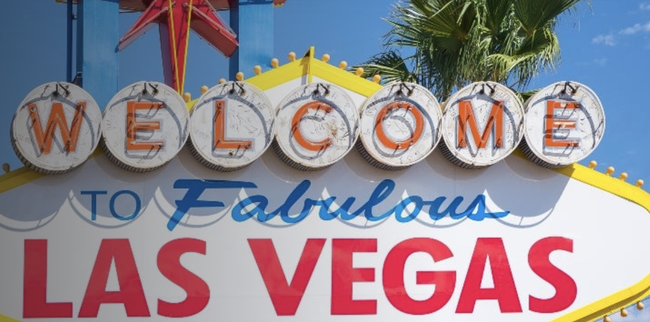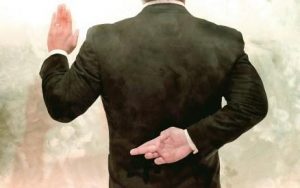As economists around the world try to make sense of the coronavirus pandemic’s growth-destroying capacity, a team at Bankrate.com has devised a simple measure of ‘economic hardship’ to measure how much the outbreak in the US has harmed each state. BR’s index comprises measures of unemployment and mortgage delinquencies (two critical signs of personal financial peril) to judge how the people of every state have fared since the outbreak began.
One interesting conclusion from the survey was the lack of correlation between COVID-19 cases and overall economic impact. New York will fare reasonably well in the coming months (though certainly industries like food service and hospitality may suffer), but the tourism-dependent economies of Hawaii and Nevada have been hit hard by the implosion of the tourism industry.
“States experiencing high unemployment will see mortgage delinquencies surge if unemployment remains elevated as forbearance periods expire,” says Greg McBride, CFA, Bankrate chief financial analyst. “This year may see the worst for unemployment, but 2021 will likely bring the worst for mortgage delinquencies and defaults.”
As China ups its orders of certain farm products, the long-suffering American farmers, who have struggled with low commodity prices, are seeing surprising resilience in unemployment and mortgage defaults. Nebraska had the best showing in BR’s Housing Hardship Index, and Idaho has performed well. Neither saw their unemployment rate crack double-digit territory last month or today.
These five states fared the worst in May, according to BR’s index (courtesy of BR.com).
- Nevada. Its mortgage delinquency rate rose to 9.99 percent in May from 7.97 in April. Unemployment fell to 25.3 percent from 28.2 percent in April, for an overall reading of 35.29. Nevada also was the hardest-hit state in April.
- Hawaii. Another tourism-dependent state, Hawaii saw its mortgage delinquency rate rise to 9.30 percent in May from 7.12 percent in April. Unemployment edged up to 22.6 percent in May from 22.3 percent in April, for an overall measure of 31.90. Hawaii remained No. 2 in Bankrate’s hardship ranking.
- Michigan. The long-struggling state had reported more than 6,100 deaths from COVID-19 as of June 30. Its delinquency rate rose to 6.59 percent in May from 5.70 percent in April. Unemployment dipped to 21.2 percent in May from 22.7 percent in April, for an overall reading of 27.79.
- New Jersey. Another state hit hard by the coronavirus, New Jersey saw its delinquency rate jump to 10.49 percent in May from 8.81 percent in April. Its unemployment rate of 15.2 percent dipped down from 15.3 percent in April.
- Rhode Island. Mortgage delinquency rates jumped to 8.41 percent in May from 7.27 percent in April. Unemployment was 16.3 percent.
Meanwhile, these are the five least-affected states.
- Nebraska. The mortgage delinquency share is 6.12 percent, and the jobless rate is 5.2 percent.
- Idaho. Its unemployment is a comparatively low 8.9 percent, and just 4.29 percent of mortgages are late.
- Montana. Unemployment was 9 percent, and just 4.92 percent of mortgages were delinquent.
- North Dakota. The unemployment rate was 9.1 percent in May, and the delinquency rate was 4.83 percent.
- South Dakota. Its unemployment rate of 9.4 percent was well below the national average, as was the delinquency rate of 4.68 percent.
As one BR economist explained, the coronavirus outbreak forced a virtual shutdown of Nevada’s economy.
Nevada has experienced a near-shutdown of its economy, which is driven by casinos, conventions and concerts – all victims of the coronavirus. The state hasn’t diversified its employment base much beyond tourism, and hospitality employment plunged 39 percent from April 2019 to April 2020, says Stephen Miller, an economics professor at the University of Nevada, Las Vegas.
“Things don’t look very good here in Las Vegas,” Miller says. “Leisure and hospitality was the worst-hit sector, and 30 percent of our employment in southern Nevada is in leisure and hospitality.”
Las Vegas’ vulnerable economy has scared off some real estate investors. For instance, Unison Home Ownership Investors, a company that takes equity shares in homes, says it won’t do deals in Sin City in the near future. “A place like Las Vegas would just be far too risky for us to invest right now,” says Brodie Gay, the company’s vice president of research.
It’s familiar territory for the Nevada real estate market, which was pummeled during the Great Recession. “Our recovery is going to be, like the last one, longer than the rest of the country’s,” Miller says. One saving grace, he hopes, is that many of Vegas’ visitors can drive from California.
Fortunately for Hawaiians, the state, also heavily tourism dependent, only suffered a glancing public-health blow from COVID-19. Nevadans haven’t been quite as lucky. Meanwhile, its casinos, which only just reopened, are bracing for another closure order from the governor – literally their operators’ worst-case scenario.


















